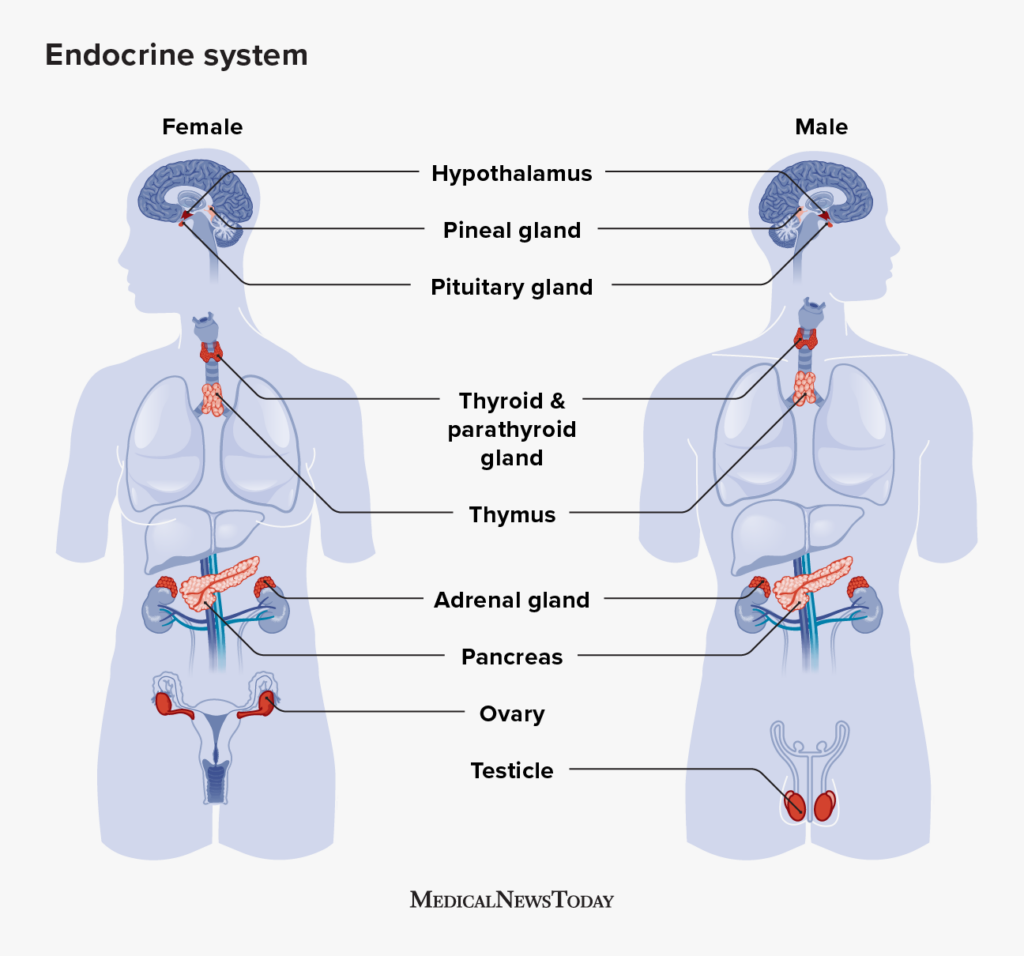Endocrinologist in Cedar Park: Comprehensive Hormonal Wellness Solutions
Wiki Article
The Science Behind Hormonal Agent Regulation: Insights From an Endocrinologist
The Scientific Research Behind Hormone Law: Insights From an Endocrinologist provides a detailed exploration of the complex procedures entailed in hormonal agent guideline. Whether you are a medical professional seeking a deeper understanding of endocrine feature or an individual interested in finding out about the science behind hormone policy, this book is an indispensable source.Hormonal Agents and Their Functions
Hormonal agents play vital duties in the guideline and sychronisation of numerous physical procedures within the body. These chemical carriers are generated by endocrine glands and are released into the bloodstream, where they travel to target cells or organs to exert their results. The functions of hormonal agents vary and incorporate nearly every element of human physiology.Among the key features of hormonal agents is to preserve homeostasis, which is the stable inner environment essential for the body to work efficiently. For instance, insulin, a hormone created by the pancreatic, controls blood sugar levels by advertising the uptake and storage space of sugar in cells. One more hormone, cortisol, helps the body react to tension by raising blood glucose levels and reducing the body immune system.
Hormonal agents also play vital functions in growth and development. Growth hormonal agent, generated by the pituitary gland, stimulates the development of bones and cells, while thyroid hormonal agents control metabolic rate and influence the growth of the nerves - Endocrinologist in georgetown. In addition, reproductive hormones, such as estrogen and testosterone, are in charge of the development and maintenance of secondary sexual qualities and the law of the menstruation
The Endocrine System: An Introduction
Playing a critical function in the guideline and control of physical processes, the endocrine system is an intricate network of glands that produce and release hormones into the blood stream. These glands, including the hypothalamus, pituitary gland, thyroid gland, adrenal glands, pancreatic, ovaries, and testes, secrete hormones that act as chemical messengers, influencing numerous bodily functions. The endocrine system functions in combination with the nervous system to preserve and control homeostasis, guaranteeing that the body's interior setting stays secure.The hypothalamus, situated in the brain, is taken into consideration the master regulatory authority of the endocrine system. It creates hormones that promote or inhibit the launch of hormones from the pituitary gland, which consequently manages the task of various other endocrine glands. The thyroid gland, located in the neck, creates hormones that control metabolic process and energy balance. The adrenal glands, located atop the kidneys, create hormones that help the body reply to anxiety and manage high blood pressure.

Policy of Hormonal Agent Production
The regulation of hormone manufacturing includes a complicated interplay between different glands and comments systems within the endocrine system. Hormones are chemical messengers that play an essential role in preserving homeostasis and working with different physical processes in the body. The manufacturing of hormonal agents is snugly managed to guarantee the correct performance of the endocrine system.The hypothalamus, situated in the brain, functions as an essential regulator of hormone production. It launches hormones that prevent the production or stimulate of hormonal agents by the pituitary gland, which is usually referred to as the "master gland" of the endocrine system. The pituitary gland, subsequently, creates hormonal agents that act on numerous target glands throughout the body, stimulating them to create and release details hormonal agents.
Feedback mechanisms additionally play a vital duty in hormone policy. There are 2 kinds of feedback systems: unfavorable comments and positive feedback. Unfavorable feedback assists keep hormonal agent degrees within a slim array. When hormonal agent degrees climb over or fall listed below the optimum variety, the body triggers devices to either decrease or rise hormone production, specifically, to recover equilibrium. Positive comments, on the various other hand, enhances the manufacturing of hormonal agents in response to specific stimulations, such as childbirth.
Comments Loops in Hormonal Agent Guideline
Comments loopholes play a crucial role in the guideline of hormone production. These loopholes involve a series of interactions in between the endocrine glands, hormones, and target body organs to keep homeostasis in the body. There are two kinds of comments loopholes: negative comments and favorable comments.When hormonal agent degrees climb over a certain limit, the hypothalamus in the brain signifies the pituitary gland to decrease hormonal agent manufacturing. Conversely, when hormonal agent levels drop below the limit, the hypothalamus promotes the pituitary gland to enhance hormone production, bring back balance.
Favorable comments loops, on the other hand, amplify hormone manufacturing. This takes place when a hormone boosts the release of more of the exact same hormonal agent, bring about a quick rise in its levels. However, favorable feedback loopholes are less usual in hormone policy and are usually associated with certain physiological processes, such as giving birth and lactation.
Elements Influencing Hormone Balance
Factors affecting hormonal agent equilibrium include dietary options, way of Endocrinologist in georgetown life habits, and ecological direct exposures. These aspects can have a significant impact on the fragile equilibrium of hormones in the body, affecting different physiological procedures and general wellness.Dietary selections play an essential role in hormonal agent regulation. Consuming a balanced diet plan that includes a range of nutrients is essential for keeping hormonal agent balance.
Ample rest is critical for hormone manufacturing and law, as interrupted rest patterns can lead to inequalities. Furthermore, chronic stress can dysregulate the hypothalamic-pituitary-adrenal (HPA) axis, a crucial gamer in hormonal agent regulation, leading to a waterfall of hormone discrepancies.

Final Thought
To conclude, comprehending the scientific research behind hormone guideline is crucial for keeping overall health and wellness and well-being. Hormonal agents play crucial functions in various physical features, and their manufacturing is managed by intricate feedback loops. Elements such as diet, stress, and way of life options can affect hormonal agent equilibrium. By studying and comprehending these systems, we can better understand and handle hormone-related conditions, ultimately resulting in enhanced wellness outcomes.The Science Behind Hormone Law: Insights From an Endocrinologist provides a comprehensive expedition of the detailed processes entailed in hormonal agent guideline. It creates hormones that promote or prevent the launch of hormonal agents from the pituitary gland, which in turn manages the task of other endocrine glands. It launches hormonal agents that boost or prevent the manufacturing of hormonal agents by the pituitary gland, which is frequently referred to as the "master gland" of the endocrine system. The pituitary gland, in turn, creates hormones that act on different target glands throughout the body, promoting them to produce and launch specific hormonal agents.
When hormone levels increase above a specific limit, the hypothalamus in the mind indicates the pituitary gland to reduce hormone manufacturing. (Best endocrinologist near me)
Report this wiki page